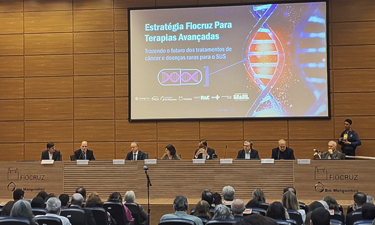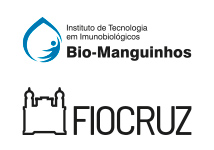
This Tuesday (26/03) the auditorium of the Vinícius Fonseca Administrative Center hosted the launch of the Fiocruz Strategy for Advanced Therapies. The ceremony was attended by the Minister of Health, Nísia Trindade, and also marked the signing of the technology transfer agreement between Bio-Manguinhos/Fiocruz and the American organization Caring Cross, which will allow production in Brazil, exclusively in Latin America , CAR-T cells and lentiviral vectors.
The partnership will enable the country to drastically reduce the production costs of this type of therapy, expanding the supply of treatments for hematological cancers and infectious diseases to the Brazilian population. The initiative also has a partnership with the National Cancer Institute (INCa), which will carry out clinical trials for hematological cancers, and the Evandro Chagas National Institute of Infectious Diseases (INI/Fiocruz), which will conduct trials for infectious diseases.
During the event, the minister pointed out that the initiative “is a milestone in Brazilian health that will multiply the population's access to new technologies tenfold and have an immense impact on the SUS”. She also highlighted that the new therapies will benefit not only Brazil, but will also reach other countries in Latin America. “Brazil has great interest in a global alliance that facilitates and makes access to treatments and medicines cheaper,” she stated.
“We are happy with the partnership with Caring Cross, which has deep experience in the technologies used to produce CAR-T cell therapy”, declared the president of Fiocruz, Mario Moreira. “This technology transfer enables Fiocruz to cost-effectively produce these CAR-T cells and other vital therapies and gives our institution the capabilities necessary to become a central hub for the manufacturing of advanced medicines.”
With the transfer of technology, Bio-Manguinhos will locally produce the lentiviral vectors to be used for CAR-T cell therapy, in addition to being the certifier for advanced posts implementing this therapy in health units across Brazil. "We are working at the frontier of knowledge and this is an opportunity for Bio-Manguinhos to consolidate and expand its competencies in innovation and production of biological products", stated Mauricio Zuma, director of Bio-Manguinhos.
Also present at the event, the executive director of Caring Cross, Boro Dropulić, said he was very happy with the partnership and the transformative effects on Brazilian health, which he predicts will soon become a reality. “Our intention is to present innovative and effective products, at sustainable prices and with great results,” he said.
CAR-T therapy
CAR-T Cell therapy uses T lymphocytes, which make up the immune system and which, when genetically modified, become more active against blood cancers. It is a completely individualized and personalized medicine. In ex vivo CAR-T treatment (technology being transferred to Bio-Manguinhos), the patient's own cells are collected, genetically modified in the laboratory using a viral vector (lentivirus) and returned to the patient in the form of a medicine.
CAR-T therapy is a revolutionary approach that has proven to be very effective against different types of blood and lymphatic system cancers, in addition to HIV. In the case of leukemia, clinical studies have been successfully applied to patients whose conventional treatments, such as chemotherapy or bone marrow transplantation, did not achieve the desired results.
The CAR-T project in Bio-Manguinhos
In the CAR-T project in Bio-Manguinhos, the unit will be responsible for the production of viral vectors (lentiviruses), used for the genetic modification of the patient's T cells; for the assembly of the standard modular unit for CAR-T production in Brazil, and for the certification of the next units that will be installed later.
Initially, two modular units will be installed for CAR-T production: one within the Bio-Manguinhos campus and the other at the National Cancer Institute (INCa). The CAR-T production carried out at Bio-Manguinhos/Fiocruz will be used at the Evandro Chagas National Institute of Infectology (INI/Fiocruz) in clinical studies related to HIV treatment. The INCa unit will allow the execution of clinical studies for patients with hematological cancer (leukemia and lymphoma).
The expectation is that both modular units will be installed in Rio de Janeiro in 2024. The protocols for clinical trials are being developed for submission to regulatory bodies and, as soon as they are approved, clinical trials will begin with the nationalized CAR-T and produced in these modular units certified by Bio-Manguinhos.
Text, English Version & Image: Thais Christ


